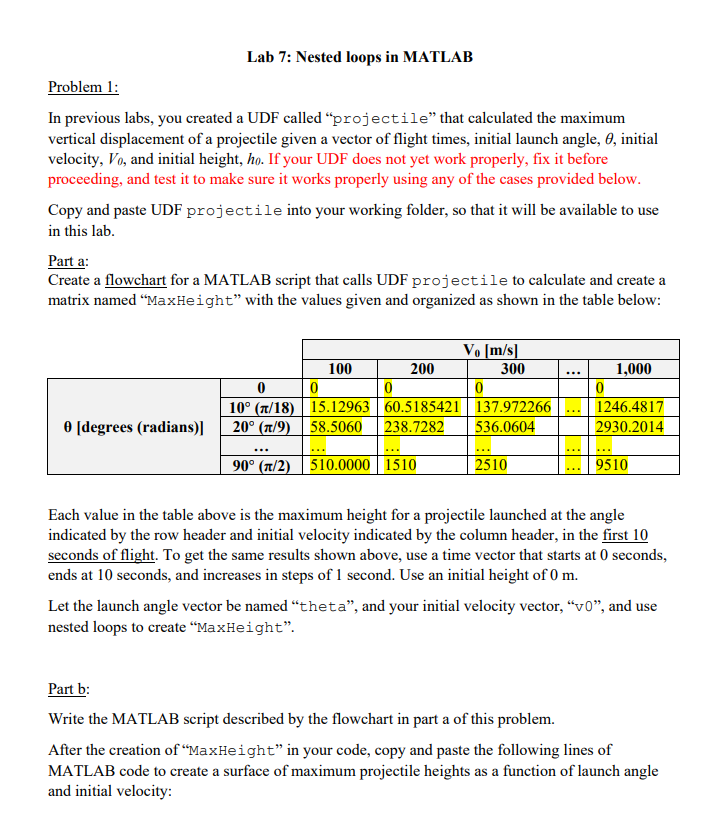Question
Part B) Create a MATLAB Script that follows this part a of the problem. The projectile UDF that it refrences is as follows function [x,y,maxy,max_x,maxt]
Part B) Create a MATLAB Script that follows this part a of the problem.
The "projectile" UDF that it refrences is as follows
function [x,y,maxy,max_x,maxt] = projectile(Vo, theta, H, t) % start UDF (t = time, H=initial height, Vo = initial velocity, theta = initial angle)
g = 9.8; x = (t)*(Vo)*cos(theta); % horizontal distance traveled per given time in seconds y = (H)+(t)*(Vo)*sin(theta)-(0.5)*(g)*(t.^2); % vertical distance traveled per given time in seconds [maxy,index] = max(y); % max vertical distance in meters max_x = x(index); % max horizontal distnace in meters where maxy is greatest maxt = t(index); % the max time in seconds where maxy and max_x are greatest end % End UDF

Step by Step Solution
There are 3 Steps involved in it
Step: 1

Get Instant Access to Expert-Tailored Solutions
See step-by-step solutions with expert insights and AI powered tools for academic success
Step: 2

Step: 3

Ace Your Homework with AI
Get the answers you need in no time with our AI-driven, step-by-step assistance
Get Started


